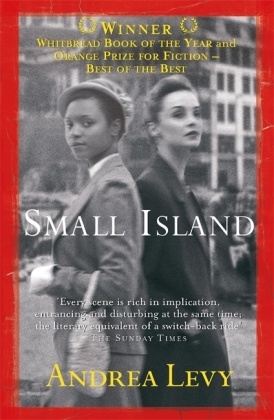
Small Island - Winner of the Orange Prize 2004 and the Whitbread Novel Award 2004
| Verlag | Review |
| Auflage | 2009 |
| Seiten | 560 |
| Format | 12,9 x 19,8 x 3,5 cm |
| Print PDF. | |
| Gewicht | 362 g |
| Artikeltyp | Englisches Buch |
| ISBN-10 | 075530750X |
| EAN | 9780755307500 |
| Bestell-Nr | 75530750EA |
Nach der Rückkehr aus dem Krieg werden der aus Jamaika stammende Gilbert und seine Frau mit den Vorurteilen der englischen Nachkriegsgesellschaft konfrontiert.
Small Island by bestselling author Andrea Levy won the Orange Prize for Fiction and the Orange Prize 'Best of the Best' as well as the Commonwealth Writers' Prize and the Whitbread. Possibly the definitive fictional account of the experiences of the Empire Windrush generation, it was selected by the BBC as one of its '100 Novels That Shaped Our World'.
'A great read... honest, skilful, thoughtful and important' Guardian
It is 1948, and England is recovering from a war. But at 21 Nevern Street, London, the conflict has only just begun.
Queenie Bligh's neighbours don't approve when she agrees to take in Jamaican lodgers, but with her husband, Bernard, not back from the war, she has little choice in the matter.
Gilbert Joseph was one of the many Jamaican men who joined the RAF to fight Hitler. But when he returns to England as a civilian he doesn't receive the welcome he was expecting, and it's desperation that drives him to knock at Queenie's door. Gi lbert's wife Hortense, who for years has longer for a better life in England, soon joins him. But London is far from the golden city of her dreams, and even Gilbert is not the man she thought he was.
Small Island explores a point in England's past when the country began to change. In this delicately wrought and profoundly moving novel, Andrea Levy handles the weighty themes of empire, prejudice, war and love, with a superb lightness of touch and generosity of spirit.
'An engrossing read - slyly funny, passionately angry and wholly involving' Daily Mail
'Gives us a new urgent take on our past' Vogue
Rezension:
'A brilliantly deft and humane account of two ordinary couples in post-war London' Evening Standard Evening Standard
